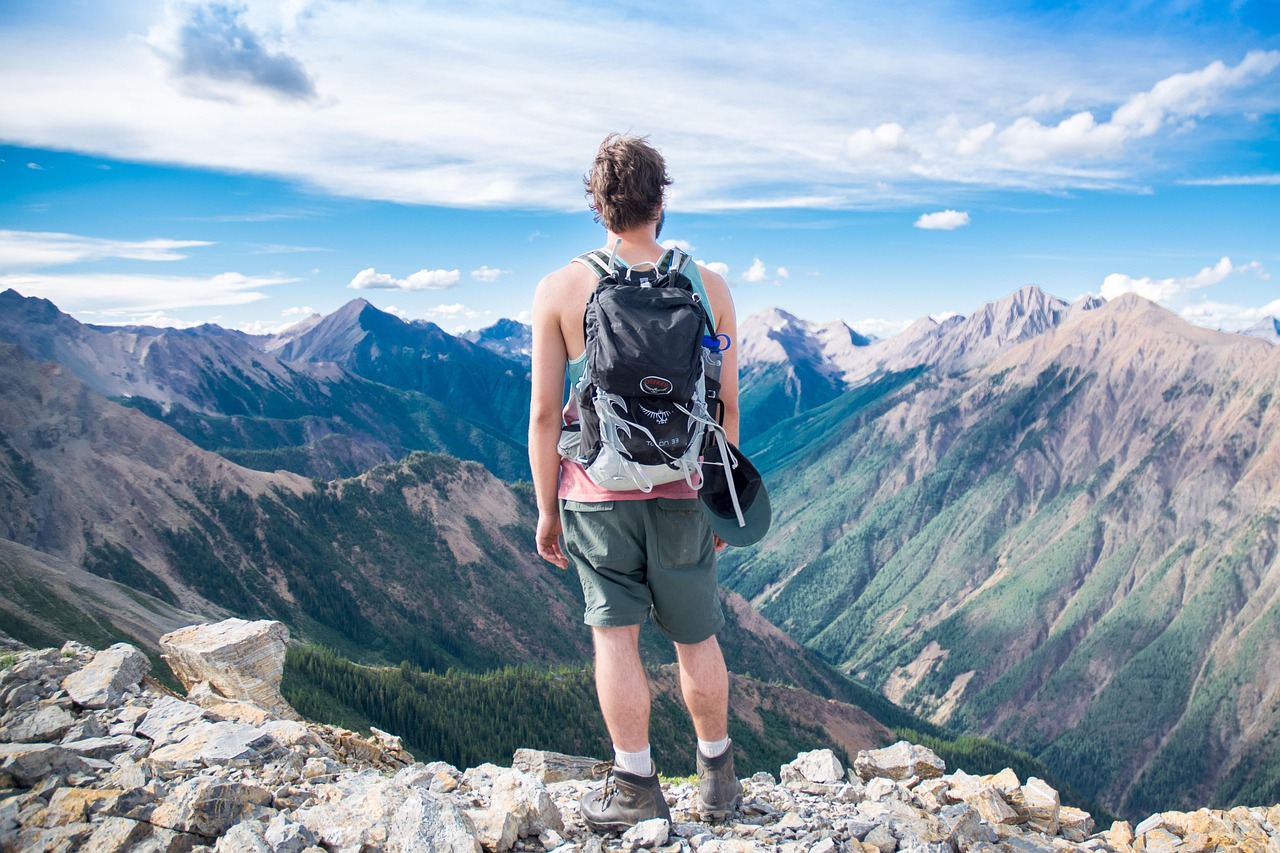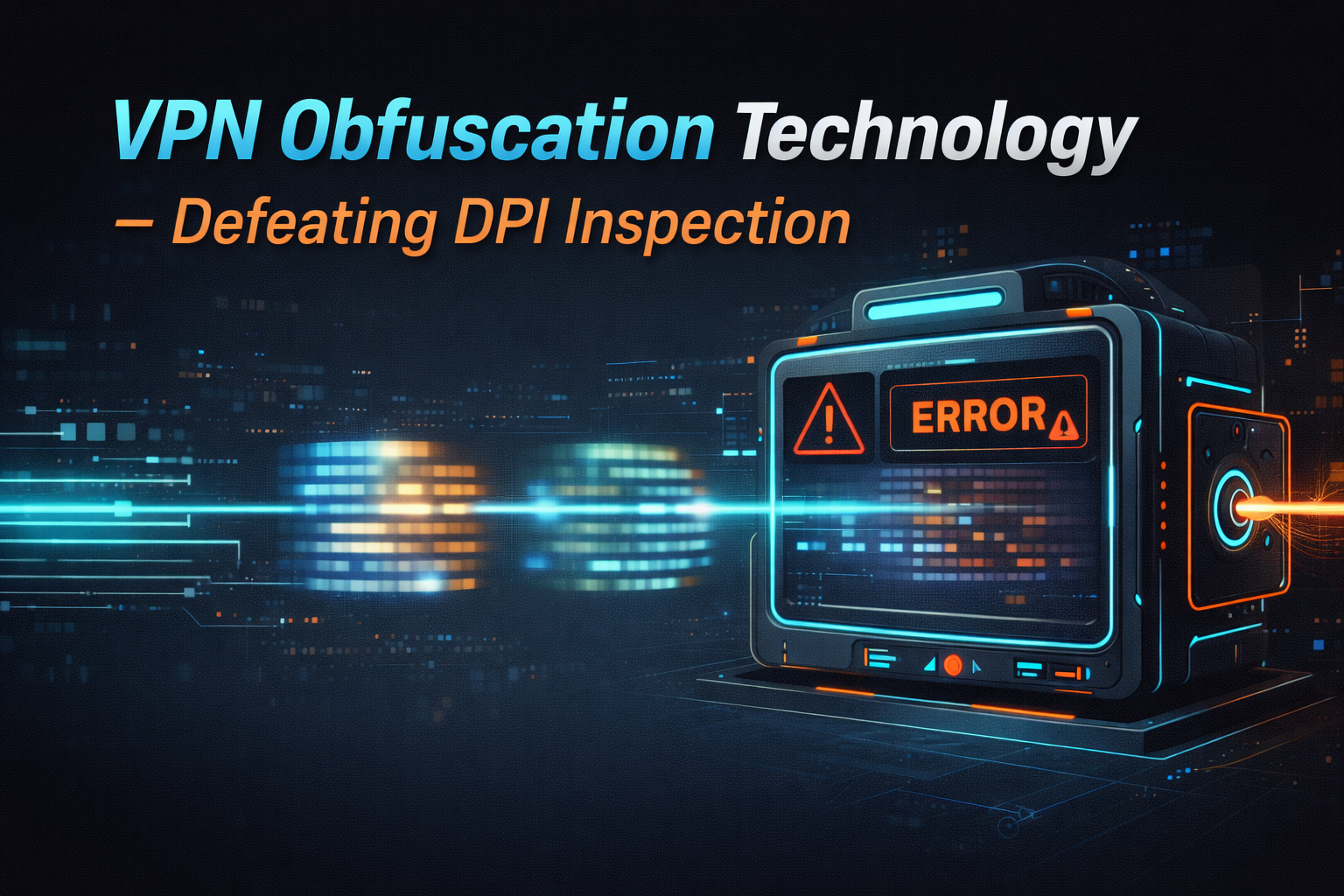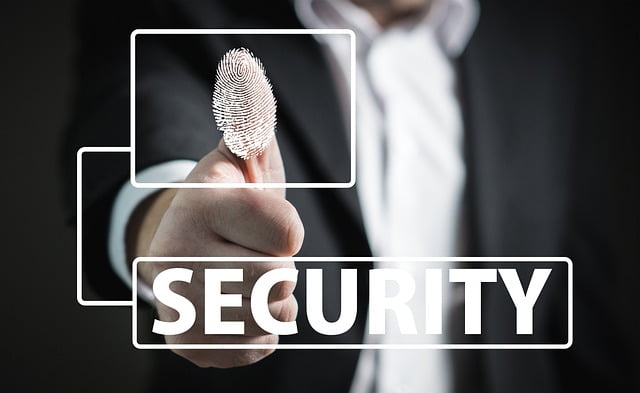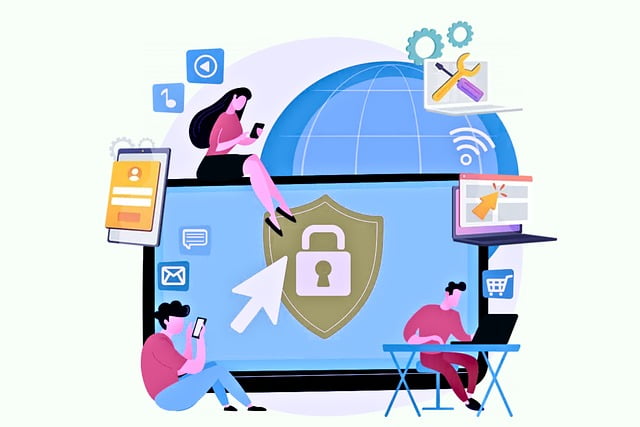How to Stay Safe Online While Traveling: A Simple Guide to Using a VPN

How to Stay Safe Online While Traveling? Traveling opens up new experiences, but it also exposes you to digital risks, especially when using public Wi-Fi networks. Whether you’re checking your bank account, accessing work emails, or browsing social media, your personal data could be vulnerable to hackers, surveillance, and other online threats. Using a Virtual Private Network (VPN) stands as the most significant method to defend your data throughout travel activities. This article will discuss the value of VPN protection for your digital security as well as help you find the ideal VPN solution.
Why You Need a VPN While Traveling: Protecting Your Digital Privacy
It becomes unpalatable to fall prey to cyberattacks during trips outside your home country. Cybercriminals thrive in public Wi-Fi networks that exist throughout airports and hotels as well as cafés. Via unsecured networks hackers easily capture your sensitive data which could include passwords and both payment credentials as well as photographs to private content.
A VPN adds encryption to internet connections so users can have safe private communications outlets to websites from their devices. The encryption established by VPNs creates such a powerful shield that hackers and others are unable to divest your information away from your devices while connected to public Wi-Fi. Through its virtual private network functionality a VPN operates as a security force that guarantees online privacy for users located anywhere across the web.
The Risks of Public Wi-Fi: Why VPNs Are a Must-Have
The ease of using public Wi-Fi results in critical security concerns for users. Failure to encrypt data when using networks makes private information vulnerable to hackers using basic monitoring software. Several threatening situations can occur because of unencrypted data transmissions through these networks.
- Man-in-the-middle attacks: Hackers intercept and alter communications between your device and a website.
- Data sniffing: Cybercriminals can capture your personal data, such as login credentials, credit card numbers, and emails.
- Malware distribution: Some public networks may be used to distribute malware to unsuspecting travelers.
Research by Norton in 2023 shows that more than sixty percent of travelers risk safety breaches when they do not protect their communications through public Wi-Fi access. The encryption of a VPN renders your data unreadable and unstealable to anyone attempting to access it.
How to Choose the Right VPN for Travel: Best Key Features to Look For
Different VPN services do not have equal characteristics. You need to find a VPN that contains the following essential features when choosing one for travelling purposes:
- Global Server Network: A VPN with servers in multiple countries allows you to bypass geo-restrictions and access content as if you were back home.
- Strong Encryption: The best VPNs use military-grade encryption, like AES-256, to ensure your data remains private.
- No-Logs Policy: Ensure the VPN provider has a strict no-logs policy to keep your online activity private.
- High-Speed Connections: Traveling can involve long hours of travel, and slow internet can be frustrating. Choose a VPN with fast speeds to ensure seamless browsing.
- Device Compatibility: Ensure the VPN works with all the devices you plan to use—smartphones, laptops, tablets, etc.
NordVPN alongside ExpressVPN and CyberGhost make up the top list of travel-friendly VPNs because they provide fast connections and extensive server networks together with reliable security capabilities.
VPN Myths Debunked: What Travelers Should Know

Despite their benefits, VPNs come with some misconceptions. Let’s clear up a few:
- Myth #1: VPNs are only for tech experts. Modern VPNs are user-friendly and easy to set up, even for non-tech-savvy users.
- Myth #2: VPNs are only useful for privacy. While privacy is a major benefit, VPNs can also help you access region-restricted content, such as streaming services or websites that are blocked in certain countries.
- Myth #3: VPNs slow down the internet. A quality VPN like NordVPN or ExpressVPN offers high-speed servers that won’t drastically reduce your browsing speeds.
By understanding these myths, you can make a more informed decision about using a VPN for your travels.
Practical Tips for Using a VPN While Traveling
When traveling with a VPN users need to do more than installing the application onto their devices. These guidelines offer useful steps for maximizing VPN performance:
- Always Connect to the VPN Before Using Public Wi-Fi: Never access sensitive information on a public Wi-Fi network without first activating your VPN.
- Turn on the Kill Switch: Many VPNs offer a kill switch feature, which disconnects you from the internet if the VPN connection drops. This ensures that your data is never exposed.
- Use Split Tunneling: Some VPNs allow you to route specific apps or websites through the VPN while letting other traffic go through your regular connection. This can help maintain speed while keeping sensitive activities secure.
- Stay Updated: Ensure your VPN app and device software are up to date to avoid security vulnerabilities.
- Test Your VPN Before You Travel: Test your VPN connection in advance to ensure it works well with your devices and offers sufficient coverage in the countries you’re visiting.
Real-Life Scenario: How a VPN Saved a Traveler’s Data
At a Parisian coffee shop Sarah who was conducting business activities accessed her work email through the public Wi-Fi network. At that moment she remained unaware that hackers operated against other users who used the same network.
The crypto-system performed by her VPN encryption kept her login details hidden from hackers due to her connected VPN session. The business data of Sarah faced exposure risks because she did not activate the VPN.
A real scenario demonstrates why people should utilize VPN connections when traveling for safeguarding their online activities including monetary transactions and personal account access.
Common Travel Scenarios Where a VPN Is Essential
Accessing remote networks through public networks becomes necessary during travels through airports and hotels and cafes. During your travel you can keep your online activities safe through VPN usage in these several typical scenarios:
1. Accessing Bank Accounts and Financial Information
Your bank account and online payments require access when you travel for services. Using a VPN becomes paramount when accessing public Wi-Fi since these networks are widely known for their security vulnerabilities which could lead hackers to access your banking information. The encryption capabilities of a VPN will protect important data when you perform financial transactions.
2. Streaming Services and Entertainment
Each nation controls through different limitations what content streaming platforms can deliver. By using a VPN you can defeat geo-blocks since the technology conceals your IP address to let streaming services believe you are in a separate geographical area. Through their VPN service you can reach Netflix and Hulu alongside BBC iPlayer even when located in a different country.
3. Avoiding Surveillance in Restrictive Countries
Internet censorship regulations and monitoring activities run extremely harsh in particular national territories. A VPN enables users to bypass surveillance and censorship by government authorities when they visit locations such as China or the UAE. Using a VPN will keep your private online communication and web activity confidential.
4. Bypassing Hotel Wi-Fi Restrictions
Different hotels restrict their Wi-Fi usage by banning certain websites and applying streaming bandwidth restrictions. The use of a VPN will let you bypass blocked websites while allowing you to maintain seamless internet connections.
VPN vs. Other Travel Security Measures: Why It’s Your Best Bet
The comprehensive protection that VPN provides all your online activities makes it superior compared to other security methods when traveling. Such security measures compare with travel protection protocols as follows:
| Security Measure | Effectiveness | Limitations |
|---|---|---|
| VPN | Provides encryption and privacy for all online activities, including browsing, messaging, and financial transactions. | Can slow down internet speeds; requires a subscription. |
| Encrypted Messaging Apps | Secures your messages and calls with encryption, preventing eavesdropping. | Only protects messaging, not browsing or other online activities. |
| Two-Factor Authentication | Adds an extra layer of security to your accounts by requiring a second form of verification. | Does not protect your data on public Wi-Fi or against hackers intercepting your online activity. |
| Antivirus Software | Helps detect malware and protect your device from threats. | Doesn’t protect your online privacy or encrypt your connection. |
As the table suggests, while other methods can add layers of security, a VPN is the most comprehensive solution for online privacy and protection while traveling.
The Global Reach of VPNs: Where Can You Use Them?

One of the most appealing features of a VPN is its global reach. VPNs offer servers in various countries, allowing you to:
- Access local content from your home country: If you’re traveling abroad and want to access services like your bank or streaming platforms, a VPN makes it appear as though you’re browsing from your home country.
- Avoid censorship and restrictions: Countries with strict internet censorship, such as China or Russia, are known for blocking access to certain websites or services. A VPN helps you access the open internet, bypassing these restrictions.
- Protect your data in high-risk regions: If you’re traveling to a country with a high risk of cyberattacks or surveillance, such as certain parts of the Middle East, a VPN can encrypt your internet connection and protect you from potential threats.
VPN Costs and Travel Budget: Is It Worth the Investment?
A VPN subscription requires payment but it provides stronger benefits than the expenses especially when considering the financial risks and privacy threats that result from not using a VPN.
Most VPN service plans today cost between $5 to $15 per month yet offer reduced rates when you select longer subscription lengths. The affordable cost of a VPN provides worth for protected and private internet access throughout your travel.
Your travel expenses will be optimized when you select a VPN service provider who will either give you a refund period or free trial so you can evaluate their service before entering into a long-term plan. You should investigate different VPN options for traveler discounts because they may provide discounted pricing.
Conclusion: Travel Smart, Travel Safe
The protection of your online privacy matters more now than ever because of the extensive connectivity available in the present world. One of the major safety concerns online users experience in foreign Wi-Fi connections comes from such unsecured networks’ known weaknesses to hacking attempts.
A VPN protects your private information and lets you maintain secure network access while giving you trouble-free access to location-restricted content.
Travelers need a VPN as their most reliable online tool because it enables bank balance checks and helps stream shows while protecting web access. Using a VPN stands as an essential requirement because protecting your online security matters to everyone who values such protection. Including your VPN in your travel pack will be a tiny protection measure that shields you from major online issues in the future.
Our Personal Thoughts: The Undeniable Value of Using a VPN While Traveling
Digital life security requires utmost importance because travel has become imperative for leisure activities and business operations. Advanced cyberattacks unfold through public Wi-Fi networks because criminals view these networks as prime vulnerabilities.
The protection of your online safety matters most regardless of your status as a traveler whether solo or digital nomad or business professional.
A VPN serves as an effective money-saving tool which defends your sensitive data while protecting your payments while also preserving your anonymity while traveling. A VPN serves as an effective security tool although users must understand its limitations. You must choose a VPN service according to your personal requirements together with your travel destinations. Having the suitable VPN gives you assurance to see the world because your digital activities stay safe.
By incorporating a VPN into your travel routine, you’ll:
- Safeguard your sensitive data against hackers and cybercriminals
- Bypass geo-restrictions to access content and services from your home country
- Prevent data sniffing and man-in-the-middle attacks on public networks
- Maintain anonymity and protect your online identity during your travels
Online tracking continues to grow so the responsible choice of controlling digital security has become crucial to smart data protection. Using a VPN during travel provides people with assurance that their online professional and personal data remains protected from damage.
Additional Resources: Stay Informed and Secure
To help you stay on top of digital safety while traveling, here are some valuable resources to explore:
- The Cybersecurity & Infrastructure Security Agency (CISA) – A U.S. government agency that provides essential security tips for travelers and advice on securing devices and data when abroad.
- TechCrunch’s VPN Reviews – Stay updated with the latest VPN reviews and comparison articles to choose the best one for your travel needs.
- The Electronic Frontier Foundation (EFF) – Offers excellent guides on digital privacy, encryption, and protecting your rights online.
- Travel-Specific VPN Blogs – Some VPN providers maintain dedicated blogs offering tips, travel-specific concerns, and best practices for digital security on the go.
While a VPN is your first line of defense, keeping informed about the latest security trends, threats, and best practices is crucial for staying safe in today’s digital world.
Ready to Start Traveling Securely?
Devote a brief amount of time before travelling to implement VPN software on your devices. Test your VPN to verify its ability for smooth operation between your various devices. Wi-Fi security through VPN creates both threat defense and unrestricted content exploration and unrestricted internet surfing while delivering online security advantages.
Secure data access during travel will become essential because the digital world is adapting to transformation which requires everyone to use the internet confidently and safely. Travelers can depend on a VPN as their ultimate digital security solution because the internet keeps evolving.
FAQs: Using a VPN While Traveling
Can a VPN protect me from hackers while using hotel Wi-Fi?
A VPN provides network protection for hotel Wi-Fi users against hackers who operate on the same network. Your connection will become encrypted with VPN therefore making it hard for cyber criminals to capture your data.
Will a VPN allow me to use my home country’s services while traveling?
Using a VPN allows your IP address to become hidden while triggering your system to display information from your home internet connection thus enabling access to services restricted to your home location when visiting other countries.
Can a VPN help me avoid tracking by websites?
Absolutely. Through encryption the browsing data becomes secure and with VPN protection your original IP remains hidden which impedes websites from tracking your online activity for targeted advertising.
Can I use a VPN to watch Netflix or other streaming services while abroad?
Yes, a VPN allows you to access Netflix and other streaming services from your home country, bypassing geo-blocks that may restrict certain content in the country you’re visiting.
Does a VPN work in all countries?
Some countries enforce strong censorship policies which block or limit access to VPN services through their laws (it occurs in China, Iran as well as the UAE). To access an area under strict censorship laws you will need a VPN provider that includes obfuscation or stealth mode options.
Can I use a VPN on public Wi-Fi?
Yes! Using a VPN on public Wi-Fi is one of the best ways to protect your personal data from cybercriminals, who often target unsecured networks like those in airports, hotels, or cafes.
Loading newsletter form...






